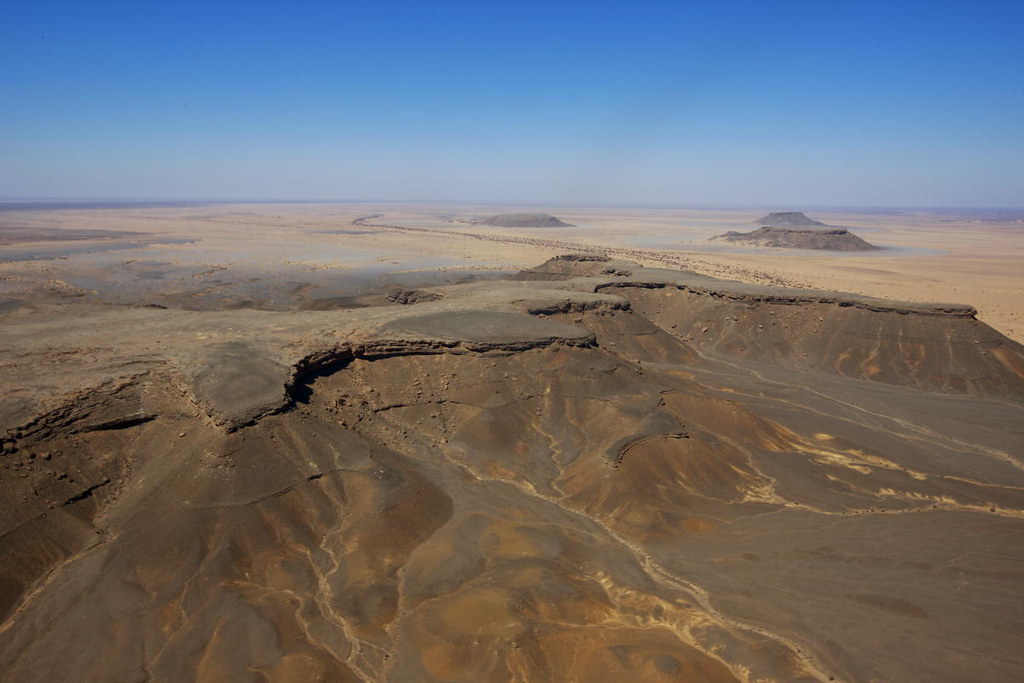How an almost lifeless piece of the Sahara could become a joker in the geopolitical deck

If Western Sahara had valuable minerals or attractive spa resorts, the French would have settled there long ago, closely followed by the Chinese. But there’s nothing like that. Nevertheless, Morocco and Algeria are competing for this forgotten land, with Morocco clearly in the lead. Rabat controls up to 80 percent of the territory, and Algeria has quarreled with France, its longtime favorite colonizer and protector, over the matter.
After receiving France’s support, Morocco’s King Mohammed VI embarked on an extraordinary roadshow. Over several years, he visited around 30 African countries to rally support for his stance on Western Sahara. Frankly, not everywhere was successful. Eventually, he made a bold decision, and today, Morocco’s initiative looks as follows:
First, Morocco is building a modern deep-water port in Dakhla, on the Atlantic coast of Western Sahara. Morocco is investing $1.2 billion in construction, which is not much for a port — but it’s not like building in Sochi. «Deep-water» means container ships can dock, implying international trade and, consequently, international customs. Construction of the 1,650-hectare port is expected to be completed by 2028 — practically tomorrow.
The second phase, which is running simultaneously with the first, involves road construction. A highway will extend southward from Dakhla — now called «Dakhla Atlantic» — to Mauritania’s capital, Nouakchott. Northern Mauritania and southern Morocco will be connected by a modern road this year.
But that’s not all. The highway will continue south to Dakar, Senegal, home to the only modern trading port in West Africa. Senegal’s new leadership hasn’t officially reacted to the proposal, but they likely won’t oppose it. The leaders, who are in their 40s, have other priorities. They declined Google’s financial aid to develop their own Senegalese Big Tech, but that’s another story.
This logistical hub will eventually connect major trade centers on Africa’s Atlantic coast with Tangier and Casablanca in Morocco. Road branches will subsequently reach Abidjan, Lomé, Cotonou, and Dakar. Morocco will make the new port’s services available to Sahel countries that lack ocean access. The 2,200-kilometer corridor is still in the planning stages but can be implemented quickly. There is potential to extend it toward Ouagadougou, Niamey, and N’Djamena.
These cities are located in Burkina Faso, Niger, and Chad, where recent coups have installed military governments. ECOWAS (the Economic Community of West African States) has not recognized these new governments enthusiastically.
Morocco’s ambition to transform Western Sahara into an economic hub pits ECOWAS against the Sahel Alliance, which includes Burkina Faso, Mauritania, Mali, Niger, and Chad, also known as the G5 Sahel. ECOWAS has imposed tough sanctions and threatened military intervention against Mali, Burkina Faso, and Niger following their coups.
Morocco’s initiative offers these three countries a lifeline. Currently isolated, they previously traded mostly with Benin and Côte d’Ivoire, earning more from transit fees than from direct trade. Now, ports in Western Sahara and Mauritania will provide them with access to the Atlantic Ocean.
«The King of Morocco realized he had strong cards to play», says Seydik Abba, an expert on Sahelian issues and author. «He exploited the political and diplomatic rift between these countries and their traditional neighbors, bringing the Alliance on board for his goals».
Indeed, Mohammed VI is riding high. Late last year, his personal intervention secured the release of four French foreign intelligence agents imprisoned in Burkina Faso — an act France appreciates.
Thus, Morocco attracts both African and foreign capital, not just for the «Dakhla Atlantic» port.
«Morocco has established strong economic, cultural, and religious ties in the region», says Jean-Yves Moisseron, a researcher at the French Institute of Development Research (IRD). “Moroccans promote a moderate, tolerant, and open interpretation of Islam, which serves as an alternative to the radical ideology preached by jihadist groups operating in the Sahel».
Clearly, Mohammed VI is playing a vast, long-term, and seemingly promising game. Almost all of his diplomatic trips to Africa were successful. The kingdom now operates banks across Africa; Royal Air Maroc regularly flies around the continent and beyond; and Moroccan telecommunications, agriculture, and energy firms are widespread.
Today, Morocco once again appears to be one of the few effective mediators capable of resolving conflicts between the Sahel Alliance and ECOWAS.
Furthermore, the kingdom attracts substantial foreign and African investment for infrastructure projects, integrating them into pan-African frameworks. In addition to highways, plans are in place for railway lines and 400 kV power transmission lines connecting Dakhla to Mauritania’s grid and, eventually, supplying power to the broader African market.
Can Morocco manage all this alone? Probably about as likely as Senegal’s own version of Google succeeding. Not likely. For now, France’s Development Agency (AFD) has modestly allocated €150 million toward Western Sahara’s development until next year. However, as the project progresses, France will undoubtedly invest more — after all, the best highways in West Africa were built by the French. Without their involvement, progress is unlikely.
Interestingly, during the course of the research, it came to light that the native population of Western Sahara — numbering 630,289 people, a population similar in size to that of a Moscow district — is called the Sahrawi. (It sounds like an old Georgian wine brand.) Yet, nobody consulted them.
By launching such an ambitious project, the Moroccan authorities aim to achieve regional power status at the very least. Transport infrastructure along the African Atlantic coast will effectively converge on them.
Why not? After all, impoverished Ethiopians successfully transformed Addis Ababa into a luxurious, pan-African airport hub. Who’s to say that Moroccans can’t achieve an oceanic equivalent?









